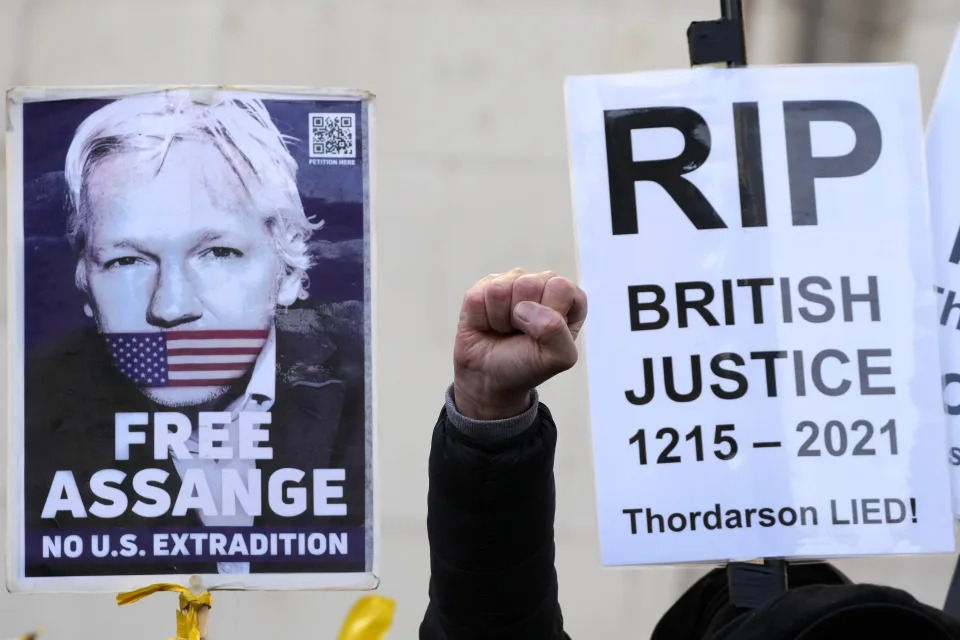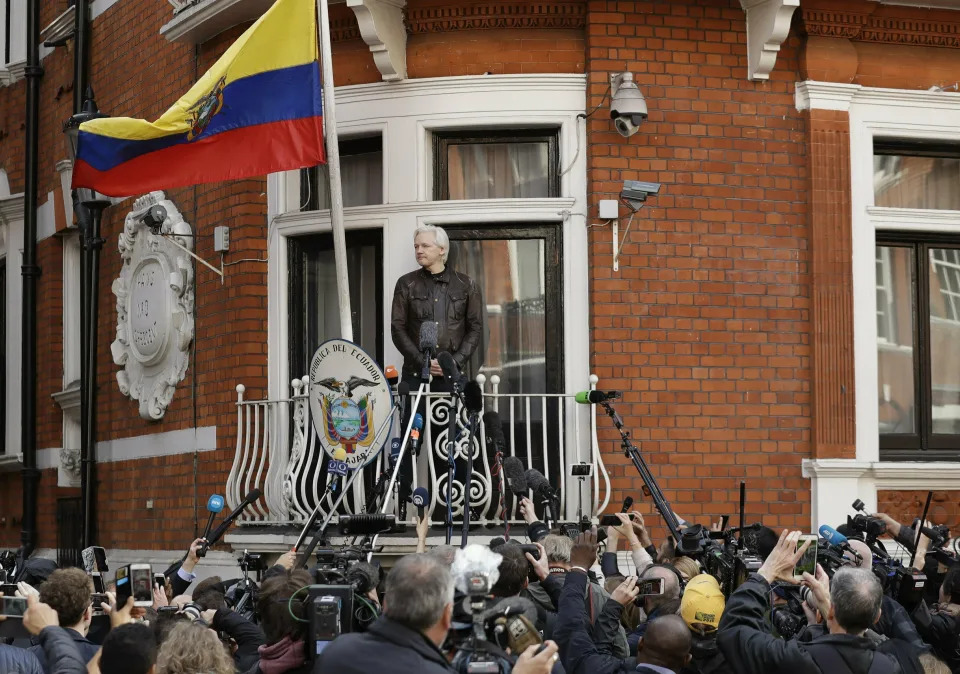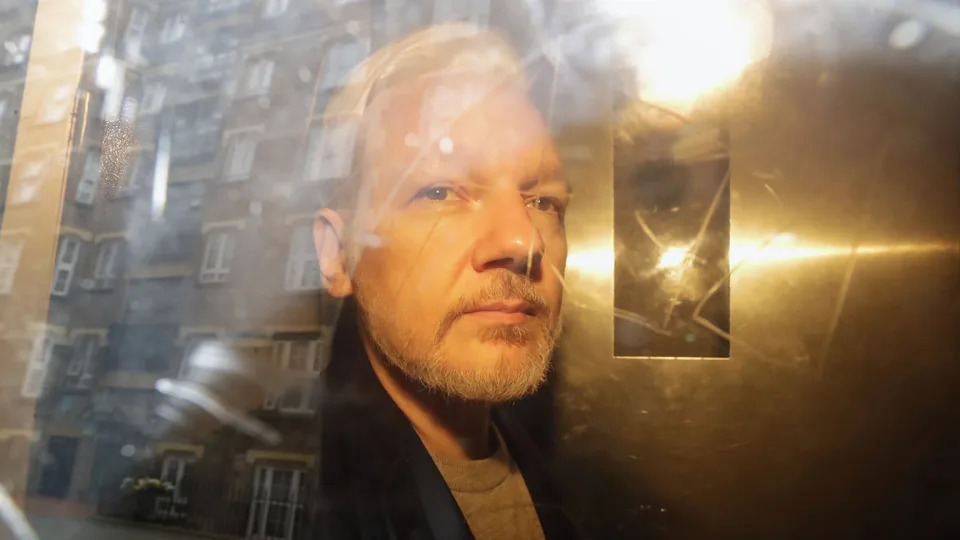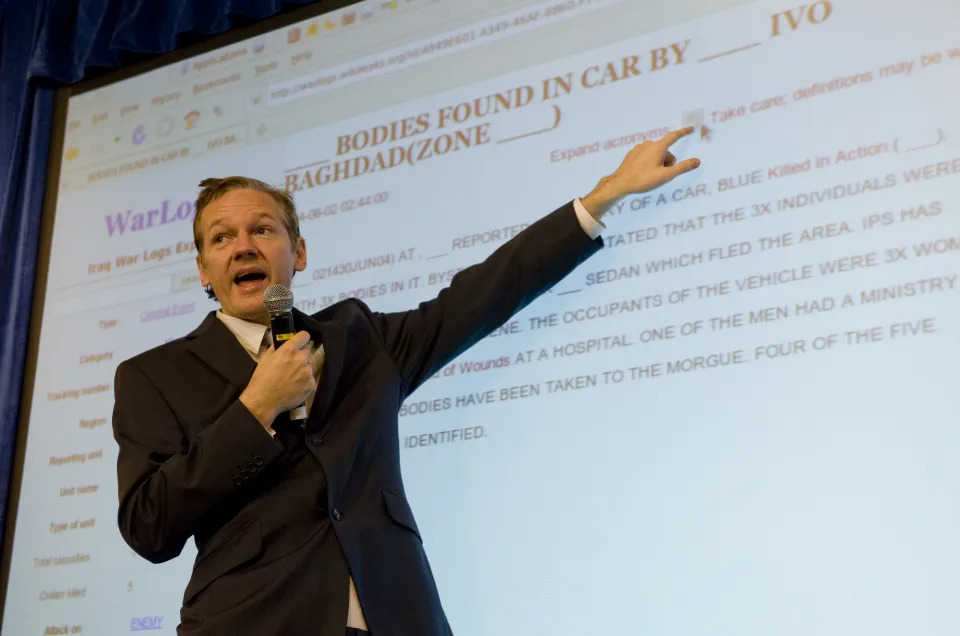British court rules Julian Assange can be extradited to U.S.
https://www.yahoo.com/news/british-c...163024416.html
 Michael Isikoff
Michael Isikoff·Chief Investigative Correspondent
Fri, December 10, 2021, 10:30 AM
A British appeals court has handed the United States a major victory in its efforts to bring WikiLeaks founder Julian Assange to trial, overturning a lower court ruling that had blocked his extradition out of fear he would commit suicide while he was in custody in a U.S. prison.
The judge’s ruling opens the door for Assange — who has been holed up in a British prison while awaiting the decision — to be flown to the U.S. to face charges that he disclosed classified documents harmful to national security in violation of the World War I-era Espionage Act.
But when that will happen is far from clear. Calling the ruling “highly disturbing,” one of Assange’s lawyers said his legal team will appeal to the British Supreme Court, suggesting that the extradition battle in London could drag on for months, if not longer, before the U.S. courts get to decide his fate.

Julian Assange supporters protest in front of the High Court in London on Friday. (Frank Augstein/AP)
“The U.K. court reached this decision without considering whether extradition is appropriate when the United States is pursuing charges against him that could result in decades in prison, based on his having reported truthful information about newsworthy issues such as the wars in Iraq and Afghanistan,” Barry Pollack, Assange’s U.S. lawyer, said in an email to Yahoo News. “Mr. Assange will seek review of this decision by the U.K. Supreme Court.”
The largely technical ruling by two judges on the British court did not take into account broader issues raised by the Assange case, such as whether his prosecution violates press freedoms (as has been
argued by media and civil liberties groups) or whether the CIA had engaged in improper conduct when, as was
reported in September by Yahoo News, it developed plans to abduct Assange from the Ecuadorian Embassy and possibly even assassinate him.

WikiLeaks founder Julian Assange on the balcony of the Ecuadorian Embassy in London in 2017. (Matt Dunham/AP)
Instead, the court primarily focused on the risks to Assange’s mental health if he is placed under harsh confinement in an Alexandria, Va., jail while awaiting trial or sent to the maximum security prison in Florence, Colo., if convicted. A lower court judge, Vanessa Baraitser, had ruled earlier this year that the risks of suicide were real given Assange’s psychological state: He had spent nearly seven years living in the Ecuadorian Embassy in London in order to avoid being extradited to Sweden to face sexual assault charges (which were ultimately dropped) and was described as suffering from an Asperger’s-like psychological disorder.
But in overturning that ruling, the British High Court said it was influenced by diplomatic assurances the U.S. gave the British government last February in the form of declarations filed by Gordon Kromberg, an assistant U.S. attorney in Alexandria who had worked on Assange’s indictment. Those assurances included a commitment that Assange would not be subject to “special administrative measures” — such as solitary confinement — in Alexandria, that he would receive psychological care while in jail and that he would not be sent to the Florence facility if convicted. Instead, the U.S. said, it would permit Assange to serve out any sentence in his native Australia.

Assange after a court appearance in London in 2019. (Matt Dunham/AP)
The High Court judges accepted those assurances, calling them “solemn undertakings, offered by one government to another, which will bind all officials and prosecutors who will deal with the relevant aspects of Mr Assange’s case now and in the future.”
But Pollack called the assurances “vague,” and Assange’s British lawyers had argued they could easily be revoked if U.S. officials decide he engaged in further conduct — such as publishing more classified documents that WikiLeaks possesses — while he is in U.S. custody. Pollack also said that Assange’s lawyers will seek to raise other issues in the British courts — such as what they view as vengeful conduct by the CIA toward him — that could postpone a final ruling for years. “There’s still a lot of legal wrangling left in the U.K.,” he said. And if those efforts fail, Assange will still have the chance to appeal to the European Court of Human Rights, a move that could delay the matter even further.
Assange has been a target of senior U.S. officials for more than a decade, ever since he began publishing classified documents about errant U.S. military strikes in Iraq and Afghanistan and State Department cables from U.S. embassies abroad. That was followed in 2016 by his publication of internal Democratic National Committee emails embarrassing to Hillary Clinton that had been hacked by Russian military intelligence and, according to a report by Justice Department special counsel Robert Mueller, were provided to WikiLeaks via an encrypted email file on the eve of that year’s Democratic convention.

Assange presents Iraq War logs at a press conference in London in 2010. (Shutterstock)
But U.S. efforts to apprehend him escalated even more dramatically in 2017, after WikiLeaks began publishing sensitive documents about the CIA’s own methods to penetrate iPhones and computers around the world, enraging the agency’s then-new director, Mike Pompeo, and prompting him to target the organization as a “non-state hostile intelligence service.” While Pompeo’s push to kidnap Assange inside the Ecuadorian Embassy was blocked by Trump White House lawyers, the sharpened focus on Assange’s activities led to his first indictment later that year for encouraging one of his sources, former Army intelligence analyst Chelsea Manning, to hack a classified computer.
Those charges have since been broadened to include an
18-count indictment for his publication of the classified military and State Department documents that U.S. officials say harmed national security and endangered the lives of sources for the U.S. government. But press-freedom advocates have argued it is impossible to meaningfully distinguish between WikiLeaks’ publication of classified material and similar disclosures by mainstream news organizations.
“Today’s ruling is an alarming setback for press freedom in the United States and around the world, and represents a notable escalation in the use of the Espionage Act in the ‘War on Whistleblowers’ that has expanded through the past several presidential administrations,” one of those press advocacy organizations, the Freedom of the Press Foundation, said in a statement Friday.
